7 Tips on how to PLAY your way to your big school adventure
Written by Laura Thomas, Owner & Class Leader Phonics Stars Leamington Spa
1. Play lots of listening games to tune child’s ears into hearing and distinguishing between sounds, rhythms and rhymes all around them. Lots of practice with this will be invaluable when your child comes to learn how to hear sounds within words in order to start spelling. This stage of learning is called Phase 1 Phonics, whereby preschoolers play with sounds, above all else, before they are even introduced to letters. A game you could play easily while out and about is “I hear with my little ear, something that sounds like tweet, tweet?”. To which they would of course say bird. This is great because it gets children listening to AND making sounds. It’s also a really lovely way to just be in the moment with your wonderful little person.
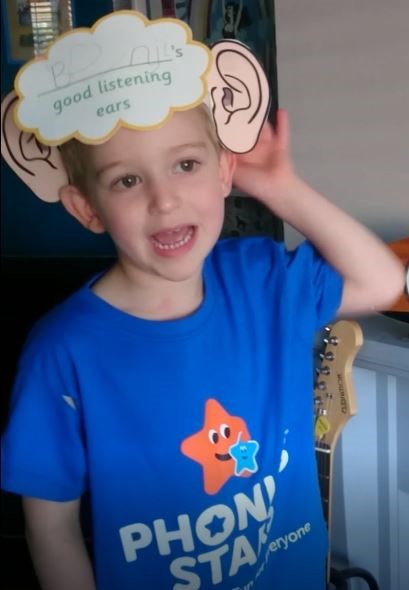

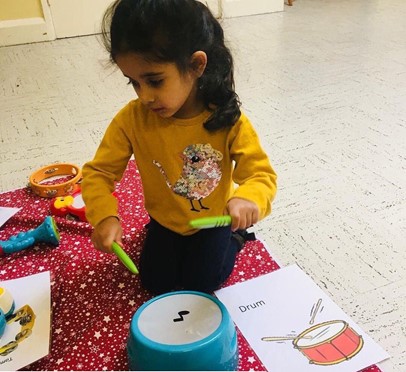
2. Get your ‘little one’s’ body moving using lots of large scale movements. Until children can control their whole bodies through dance, movement and exercise they can't possibly begin to control the smaller movements needed to hold and use a pencil correctly. Hoops, pom poms, scarves and dancing ribbons are all great for this. Another idea, for outside play, is to just give them a bucket of water and a large brush then let them have fun freely ‘painting’ the garden walls or fences.
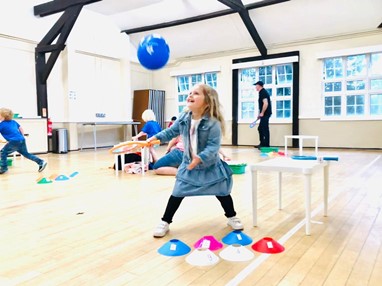
3. Strengthen children’s fine motor skills by playing with lots of items that encourage their hands to squeeze, pinch and twist. Playdough is perfect for this, as are pegs, keys, squirters, tweezers, tongs etc.
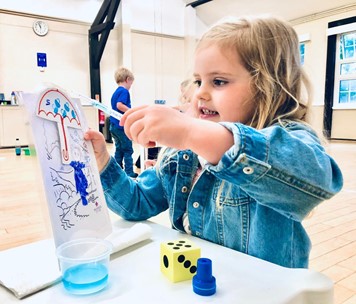
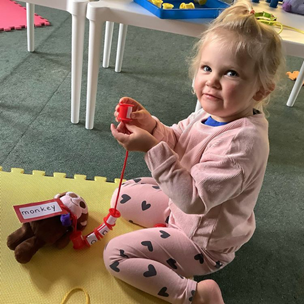
4. Babies instinctively make marks everywhere! Their senses urge them to explore and investigate, delighting in the effect of their discoveries by leaving those marks on their dinner tables, our walls and floors. It’s our job to channel that joy in ways that allow children to make their marks creatively and productively. For example, when children realise they have made footprints with their shoes when walking after rain or snow, a good idea would be to get playing at home by making tracks and prints with playdough, paint or even on the inside of the bath with the bath water. From forming pictures and symbols we can then introduce letters but only in a playful way through activities that they enjoy. For example, while pretending to be the Gruffalo in his garden, children can write a ‘g’ on plant pot labels for him. Only when writing is fun will children want to do more of it. Writing will become something that they naturally progress on to from all of that lovely mark making joy.
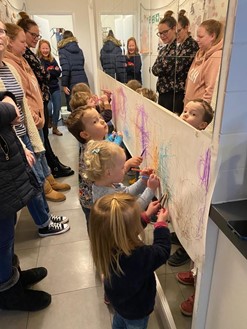

5. Read, read and read! But not words! Model how to read what is happening in the pictures of storybooks. Looking for clues from facial features and the story context. Presenting books and story language in an informal way like this will create a foundation where children view reading as fun and something that they can interact with and enjoy willingly.
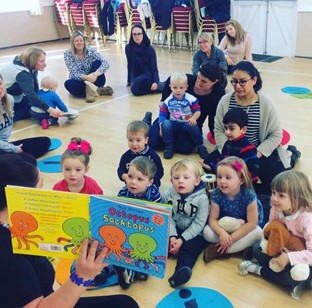
6. Get them talking by making up and involving them in your own silly stories at bedtime, to foster their imaginative skills. Getting your child to contribute by adding what might happen next will also boost their confidence.
7. Then last but not least, the obvious one is to encourage a sense of independence with personal hygiene, dressing and feeding themselves. If you give your child choices, from two options that you provide, then they are more likely to carry out whatever it is in a way that makes them feel like they have some control. Furthermore, a good place to start in order to prepare for that mammoth feat of getting their uniform on by themselves is to let them put on their own shoes and pyjamas. I know it's quicker to do it ourselves in order to get them in bed and to sleep quicker or out of the door to go out but it really is worth spending the time on this now. You'll be reaping the benefits come 8.30am on a school day when you really do have to get out of the house and be ready on time for that school bell.
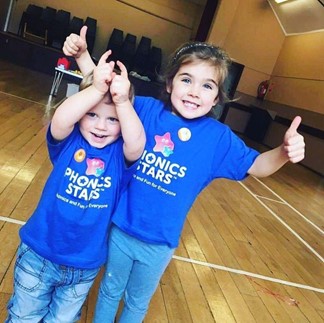
To help with all these preparations you could join a Preschool activity class like Phonics Stars. Did you know that Phonics isn't just about teaching your child to read and write? We recognise that there is a massive foundation that must be laid beforehand. At Phonics Stars, class leaders, all of whom are experienced and qualified teachers, enable Preschoolers to be well prepared in all areas of the Early years Foundation Stage, so that they can 'hit the ground running' when they do get to school and are then ready to start reading and writing.
Phonics Stars is a nationwide, award winning and fun activity class for Preschoolers aged around 30 months, where children have lots of fun learning through play, while focusing on a new letter sound each week. We specifically focus on Speaking and Listening skills and the strengthening of children's muscles for their fine and gross motor skills. Our fun sessions include games, dance, exercises, craft, show & tell, stories and much more. Not a worksheet in sight! Just a time for happy and productive play where you can enjoy quality time together making memories of such a precious time in your child's life.
To find out more contact Laura at laura.thomas@phonicsstarsleamingtonspa.co.uk or visit their website.